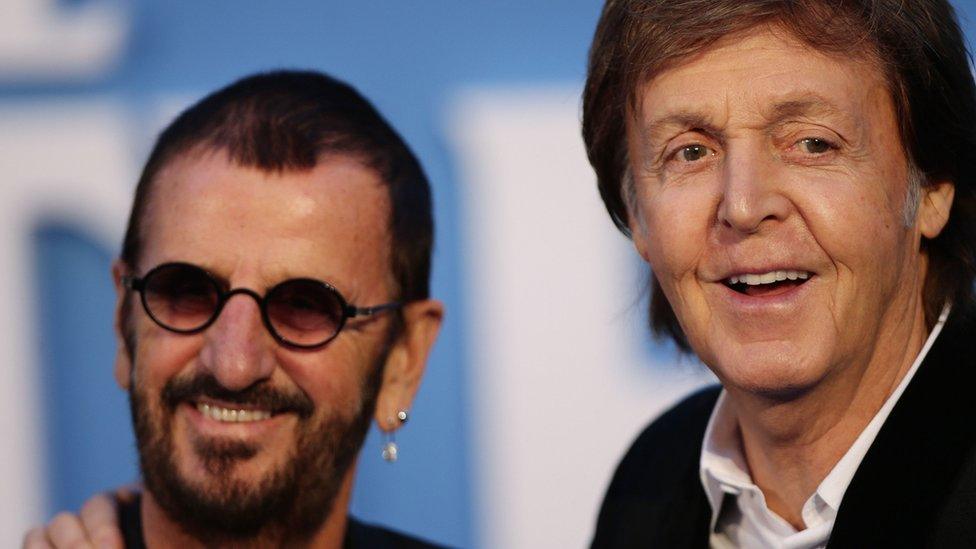John Lennon killer says sorry for 'despicable act'
- Published
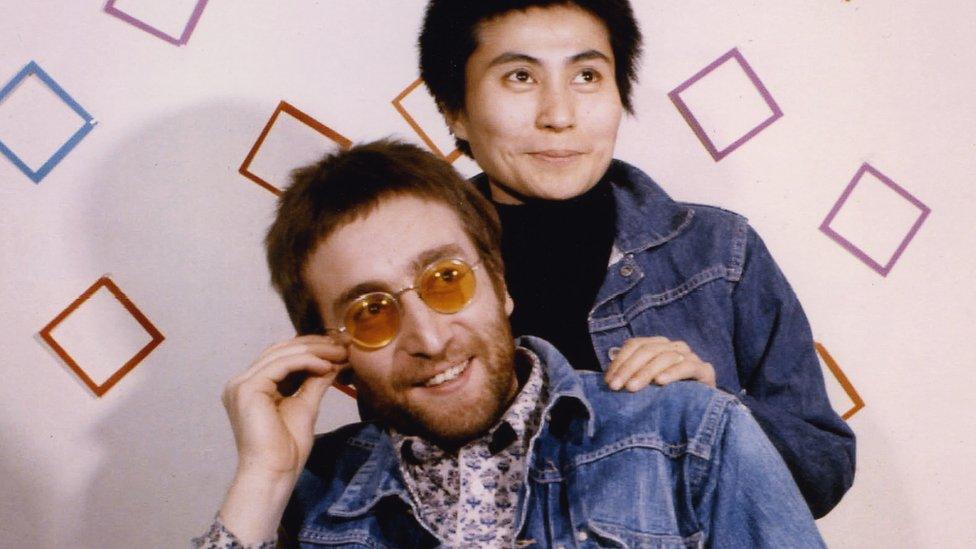
John Lennon and Yoko Ono pictured backstage at Top of the Pops in 1970
Mark Chapman, the man who killed John Lennon, has apologised to the late Beatle's widow, Yoko Ono, 40 years after his death.
Chapman shot Lennon four times outside his New York Manhattan apartment as Ono looked on, in 1980.
He was denied parole for the eleventh time following a hearing last month.
During the hearing, Chapman said he killed the 40-year-old rock star for "glory" and that he deserved the death penalty.
He added that he thinks about the "despicable act" all the time, and accepts he may spend the rest of his life in prison.
'He was an icon'
"I just want to reiterate that I'm sorry for my crime," Chapman told the parole board at the Wende Correctional Facility in New York.
"I have no excuse. This was for self-glory. I think it's the worst crime that there could be to do something to someone that's innocent.
"He was extremely famous. I didn't kill him because of his character or the kind of man he was. He was a family man. He was an icon. He was someone that spoke of things that now we can speak of and it's great.
"I assassinated him, to use your word earlier, because he was very, very, very famous and that's the only reason and I was very, very, very, very much seeking self-glory, very selfish," he added.
"I want to add that and emphasise that greatly. It was an extremely selfish act. I'm sorry for the pain that I caused to her [Ono]. I think about it all of the time."
In 2015, the Japanese artist - who has contested each one of Chapman's attempts at parole - told The Daily Beast, external that she lived in fear of him being let out of prison.
"One thing I think is that he did it once, he could do it again, to somebody else - you know. It could be me, it could be Sean [her son], it could be anybody, so there is that concern," she said.
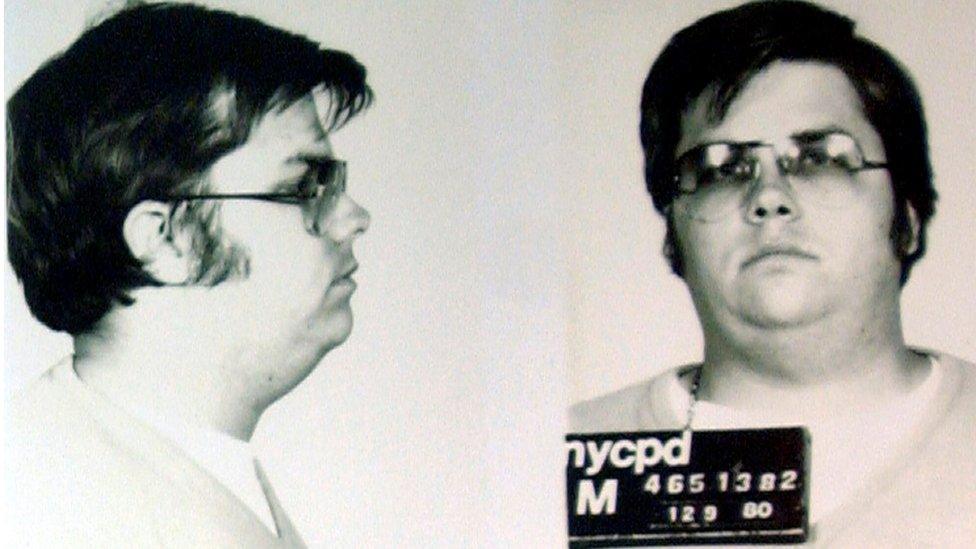
A mug-shot of Mark David Chapman, following his arrest for the murder of John Lennon
The latest hearing documents, obtained by the Press Association, show the board rejected his release on the grounds it "would be incompatible with the welfare of society".
Chapman was 25 at the time of the crime. Now 65, he is married and his wife lives near the facility where he has been for the last eight years.
At the parole board meeting he was described as being deeply religious and a "devoted Christian".
He is also a clerk and a porter in a restricted block of the prison, where he was placed for his own safety.
'Isolation and loneliness'
Lennon's killer was famously carrying the JD Salinger book, Catcher in the Rye, when he committed the murder.
Discussing his love of the book at the time, he told the board how he had identified with the main character's "isolation" and "loneliness".
He went on to say that he deserved the death penalty - it was abolished in the state of New York in 2007 although no execution had taken place since 1963.
"When you knowingly plot someone's murder and know it's wrong and you do it for yourself, that's a death penalty right there in my opinion," said Chapman.
"Some people disagree with me, but everybody gets a second chance now."
Asked if justice had been served, Chapman said: "I deserve zero, nothing.
"If the law and you choose to leave me in here for the rest of my life, I have no complaint whatsoever."
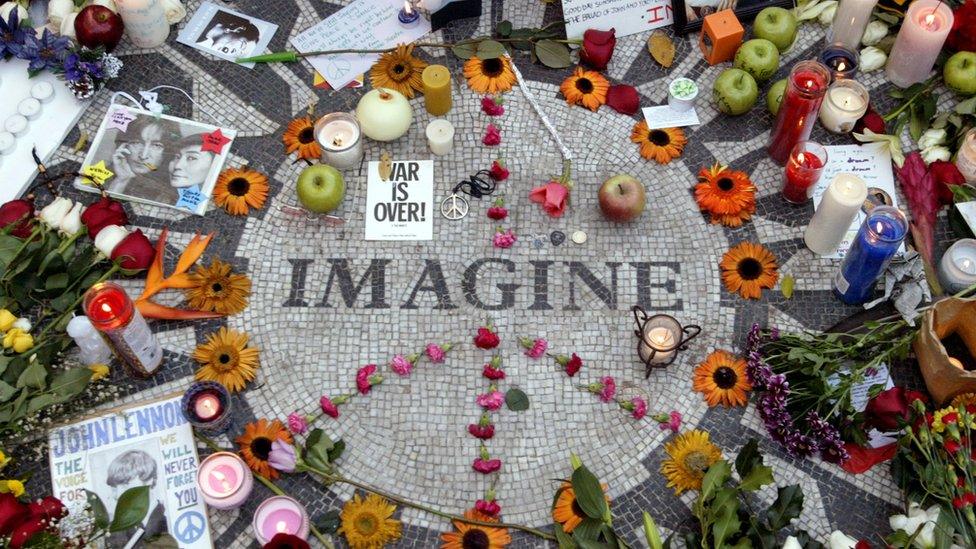
Fans regularly honour John Lennon with a memorial in Central Park's Strawberry Fields, close to his old Dakota building apartment
In its decision, the New York State Department of Corrections and Community Supervision board said it found Chapman's statement that "infamy brings you glory" disturbing, and recommended his "personal growth and productive use of time".
The board also noted how Chapman's "selfish actions stole the chance for future fans to experience the words of inspiration that this artist provided for millions of people".
"Your violent act caused devastation to not only family and former band members, but the world," it added.
Chapman is next eligible for parole in two years.

Follow us on Facebook, external, or on Twitter @BBCNewsEnts, external. If you have a story suggestion email entertainment.news@bbc.co.uk, external.
- Published13 September 2020
- Published30 August 2020
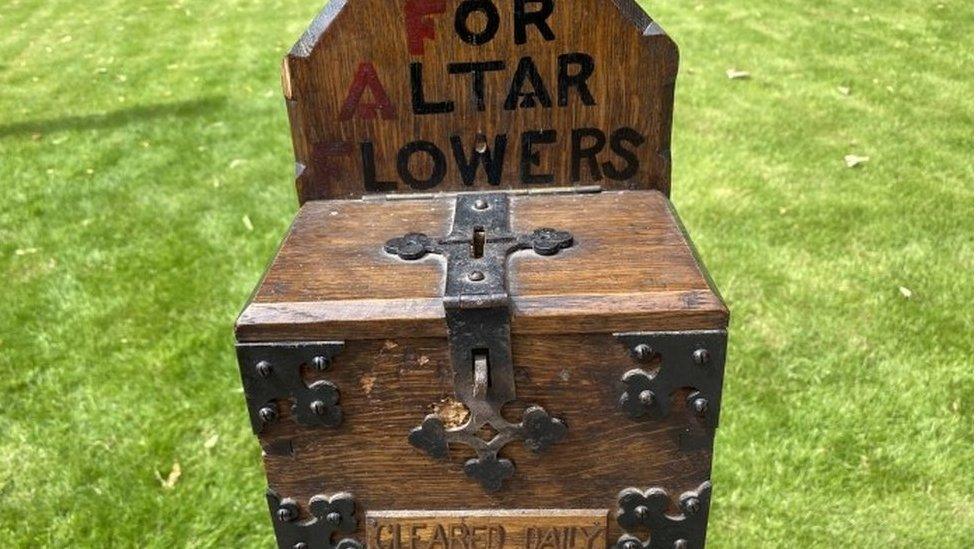
- Published4 May 2020
